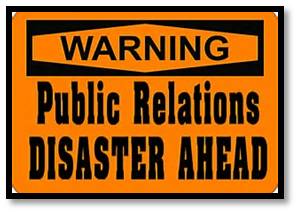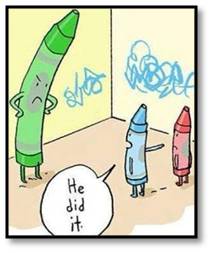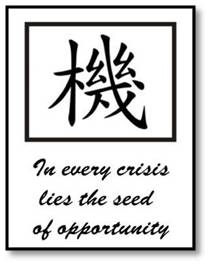Monday Author: Susanne Skinner
Last month, United Airlines CEO Oscar Munoz was named U.S. Communicator of the Year by PRWeek Magazine. This week he is living in a PR nightmare. He does not stand alone.
 Once upon a time there was no such thing as Bad PR; but today those on the receiving end would disagree. The viral power of media shaming and sharing has laid that one to rest. In a world of 24/7 news there is nowhere to hide when it comes to spinning a PR nightmare.
Once upon a time there was no such thing as Bad PR; but today those on the receiving end would disagree. The viral power of media shaming and sharing has laid that one to rest. In a world of 24/7 news there is nowhere to hide when it comes to spinning a PR nightmare.
The management suddenly finds itself tried in the court of public opinion. Their first instinct is to point the finger away from themselves; from denial to openly blaming someone else. None of them take the easy way out, and by that I mean they fail to study obvious options that bring the least harm to the company and the most benefit to the aggrieved parties.
The Road Not Taken
The United Incident had excellent (and easy) options offering multiple solutions. These were no-brainers but ignored in favor of a horrific and violent option captured by every cell phone within recording distance. The resulting media storm proves the power of consumers, who vote with their voices and their wallets.
There were two failed apology attempts by CEO Munoz, unrelenting television and social media coverage, and a new genre of memes and hashtags to underwrite public disgust. Last week the top Twitter trend was #NewUnitedAirlinesMottos; suggesting slogans such as “not enough seating, prepare for a beating,” and “Board as a doctor, leave as patient.”
As horrible as this is, it’s not the first self-inflicted public blunder. Mr. Munoz stands in good company with the likes of Pepsi, Target, SeaWorld, Bill Cosby, Anthony Weiner, Sean Spicer and too many politicians to name.
It Wasn’t Me
In addition to honest accountability, companies must show a clear commitment to repairing the damage they caused. It’s never a good idea to absolve the company or yourself, present alternative facts, or wait for the fallout to judge the severity of the damage. It’s always harder to walk backwards.
 Queue the crisis communication team—also known as damage control. This team of clever spin doctors has the task of cleaning up the mess created by a CEO who failed to understand, well…everything. Sometimes the best they can hope for is that we eventually move on.
Queue the crisis communication team—also known as damage control. This team of clever spin doctors has the task of cleaning up the mess created by a CEO who failed to understand, well…everything. Sometimes the best they can hope for is that we eventually move on.
United has endured its share of customer fallout, including a 2008 incident in which country singer Dave Carroll watched the airline damage his guitar while throwing it from the baggage hold. United reacted with indifference; Carroll wrote and produced a video about the incident called United Breaks Guitars with over 17 million views. United apologized (post video) and sought permission to use it for training.
Your PR NIghtmare: A Gift to the Competition
One man’s ceiling is another man’s floor. When bad PR happens to one company, it is a gift wrapped advertising boost to their competitors. Very few CEOs realize this truth until they are past the point of no return. In today’s media world you can literally be done in by YouTube, Facebook and Twitter.
Realization dawns when they see their company become the butt of countless jokes, media ridicule and tanking stock. Instead of a free ticket and some good will, costs run into the billions. After-the-fact PR spin is often too little too late.
An apology must come immediately. Delays provide competitors, media and opinion-makers opportunities to talk about the issue and skew the facts. Companies must step up and own their transgressions, no matter how egregiously they have played out. Transparency and authenticity are the by-laws of public apology.
Bad PR is akin to throwing advertising chum into competitive waters. After the United incident, Jimmy Kimmel created his own version of a United commercial and competitor Southwest popped up with “We beat our competition, not our customers.”
In Crisis Lies Opportunity
Denying becomes lying. Trying to deny, ignore, dismiss, delete, or spin the story results in the public’s creation of their own forum. Being tried in the media is a high-stakes game. Not all news is real news. Reporters often misstate facts, make incorrect assumptions and create additional harm with skewed reporting.
 Negative public relations hit companies where it hurts the most—the checkbook. In today’s digital world, bad press and public opinion travel faster than the speed of the send key. The sight of a United Airlines passenger being dragged bloodied and screaming from a flight is impossible to un-see.
Negative public relations hit companies where it hurts the most—the checkbook. In today’s digital world, bad press and public opinion travel faster than the speed of the send key. The sight of a United Airlines passenger being dragged bloodied and screaming from a flight is impossible to un-see.
When PR Nightmares begin to unravel the way to respond is quickly and decisively, using all platforms to communicate. When the public thinks you could have prevented it, total transparency with humility is the only response. The apologizer needs to accept responsibility—not distance themselves or their company, and most definitely not point the finger anywhere else.
In my years in the business I have seen more than a few large companies and some individuals survive a bad PR experience. There are always exceptions; but Google any major company currently in the Bad PR corner and you will likely find they have been there before.
Blurred Lines
The lines between public relations, marketing and advertising are beginning to blur. The distinction between them seems to be merging into a single discipline without the individual expertise and strengths they once had.
Crisis management requires a strong PR team, and more than an apologetic press release or CEO appearance on CNN. Corporations require a team proficient in planning for and evaluating the impact of negative PR on employees, customers, suppliers, the general public, and company value.
When it’s all said and done, a PR disaster offers learning opportunities for the rest of the industry. Wise leaders will use the incident to champion the issue, implement change and make it mean something.

A
Great analysis!
Will they ever learn?
Never heard of removing any paying customer for a “perk” employee
V
I suspect you are right about that Mike – but he’s the CEO, he saw the video and should have asked questions and demanded answers. There are no CEO get out of jail free cards…
I agree with this completely. Yet I get this nagging sense that Munoz wasn’t well apprised of the situation or its magnitude when it first arose, lily leading to his poor response at first. It’s not an excuse by any means, just a sense that its more than just him that was involved in their really lame responses.
It’s very possible that, initially, Monoz was poorly informed. That’s NO excuse once details came out.
“It’s not the crime, it’s the cover-up.” In this case, it’s not the reaction, it’s the doubling-down on the reaction.
And it’s come out that, technically, the flight was NOT overbooked. Full, yes, not overbooked. While this may seem trivial, it’s not.
Additionally, another United story has come out that an engaged couple was kicked off a flight because they “upgraded” their seats in the plane – per the news story I read, it’s because they saw that someone was sleeping in their seats, so to not disturb him they moved. Apparently that was an “upgrade” that they didn’t pay for.